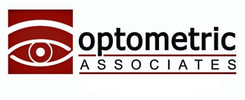WHAT IS MYOPIA?
Myopia, commonly known as nearsightedness, is a refractive error in the eye that affects how well you can see distant objects. In individuals with myopia, close objects can be seen clearly, but distant objects appear blurry.
Myopia, commonly known as nearsightedness, is a refractive error in the eye that affects how well you can see distant objects. In individuals with myopia, close objects can be seen clearly, but distant objects appear blurry.
BENEFITS OF MYOPIA MANAGEMENT
Myopia management offers several benefits, especially when implemented in children and adolescents. Here are some key advantages:
- Slows Progression of Myopia: One of the primary benefits is that myopia management strategies have been shown to slow down the progression of nearsightedness. This is particularly important because high levels of myopia are associated with an increased risk of eye diseases such as glaucoma, cataracts, and retinal detachment.
- Reduced Risk of Eye Diseases: By slowing the progression of myopia, these interventions may help reduce the lifetime risk of developing serious eye conditions associated with high myopia. This is crucial for maintaining long-term eye health.
- Improved Quality of Vision: Myopia management strategies aim to provide clearer vision for individuals with myopia, both at a distance and up close. This can enhance the overall quality of vision and make daily activities more comfortable.
- Reduced Dependence on Glasses or Contact Lenses: Some myopia management approaches, such as orthokeratology, can reduce the need for glasses or contact lenses during the day. This can be particularly beneficial for individuals who prefer not to wear corrective lenses regularly.
- Positive Impact on Academic Performance: For children, improved vision through myopia management can have positive effects on academic performance. Clear vision in the classroom is essential for learning, and managing myopia may contribute to better educational outcomes.
- Long-term Cost Savings: While there may be initial costs associated with myopia management interventions, the potential long-term benefits in terms of reduced eye-related healthcare expenses and lower dependence on corrective lenses can lead to cost savings over time.
- Enhanced Awareness and Education: Myopia management promotes awareness about the factors contributing to myopia development, encouraging healthier visual habits and lifestyle choices. This increased awareness can have a positive impact on eye health in the broader population.
- Myopia is a vision disorder, however it can increase the risk of developing an eye disease such as glaucoma, retinal detachments and macular disease by up to 41%
- 50% of the world's population is expected to be nearsighted by 2050!
